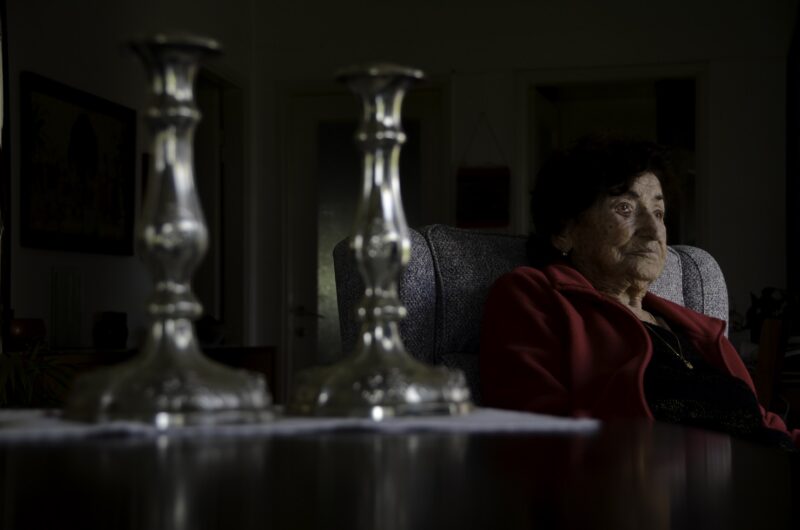
Katka Talmon
Auschwitz Holocaust survivor
“I was among the first prisoner who was deported to Auschwitz. I arrived at Auschwitz on the second transport, A sixteen-year-old girl and I was liberated from the death camp only when I was twenty and half years old after four and half long years in hell.
Upon my arrival, at this terrible place, I saw people with dirty uniforms and saved heads and I thought to myself that they must be crazy. It never occurred to me that in a short time, I will become one of those ‘crazy’ people.
For someone who wasn’t there, it’s hard for me to explain the cold, hunger, fear, and helplessness I felt during those four and half years and I can’t really explain how I managed to survive it.
In Auschwitz, I was subjected to forced labor under brutal conditions. The most horrific one was carrying the bodies of prisoners to the crematorium. Being a prisoner in Auschwitz for such a long time and witnessing the deaths of my mother and sister at the camp brought me to the edge. My emotions were so repressed that even when I saw the bodies of my own family – my uncles and aunts, it didn’t startle me and I just kept on carrying the bodies of other prisoners.
What helped me the most to survive Auschwitz was the friends I met during that horrendous time. What kept us alive was the fact that we looked out for one another even in the depths of hell, It was living proof that even in the darkest place imagine you can still be a Human. Auschwitz thought me the importance of human connection – so for the rest of my life, I tried to help people, even strangers, to the best of my ability, and I created a warm and beloved family of my own.
After a long time at the death camp, I was assigned to the ‘Kanada’ Kommando who was in charge to collect and go through all the confiscated possessions that prisoners left behind them after disembarking from the freight cars that brought them to Auschwitz. People didn’t expect to be gassed and then burned upon their arrival so they brought with them the best belongings they could stuff into a suitcase so they can use them in the near future. In those suitcases, you would find everything from food and clothes to jewelry. There were also a lot of personal items like precious letters and photos, special silver coins, and Shabbat candlesticks.
My mother had special Shabbat candlesticks that she got from her mother after her wedding but instead of bringing them to Auschwitz, she hid them in our basement in the hope that one day whoever will survive would come to collect them. After I was liberated from Auschwitz I came back to my old house and asked the occupants that lived there during the war for the keys to our basement. I was lucky enough to find them. They are a precious reminder of my beloved family who perished in the Holocaust.”
